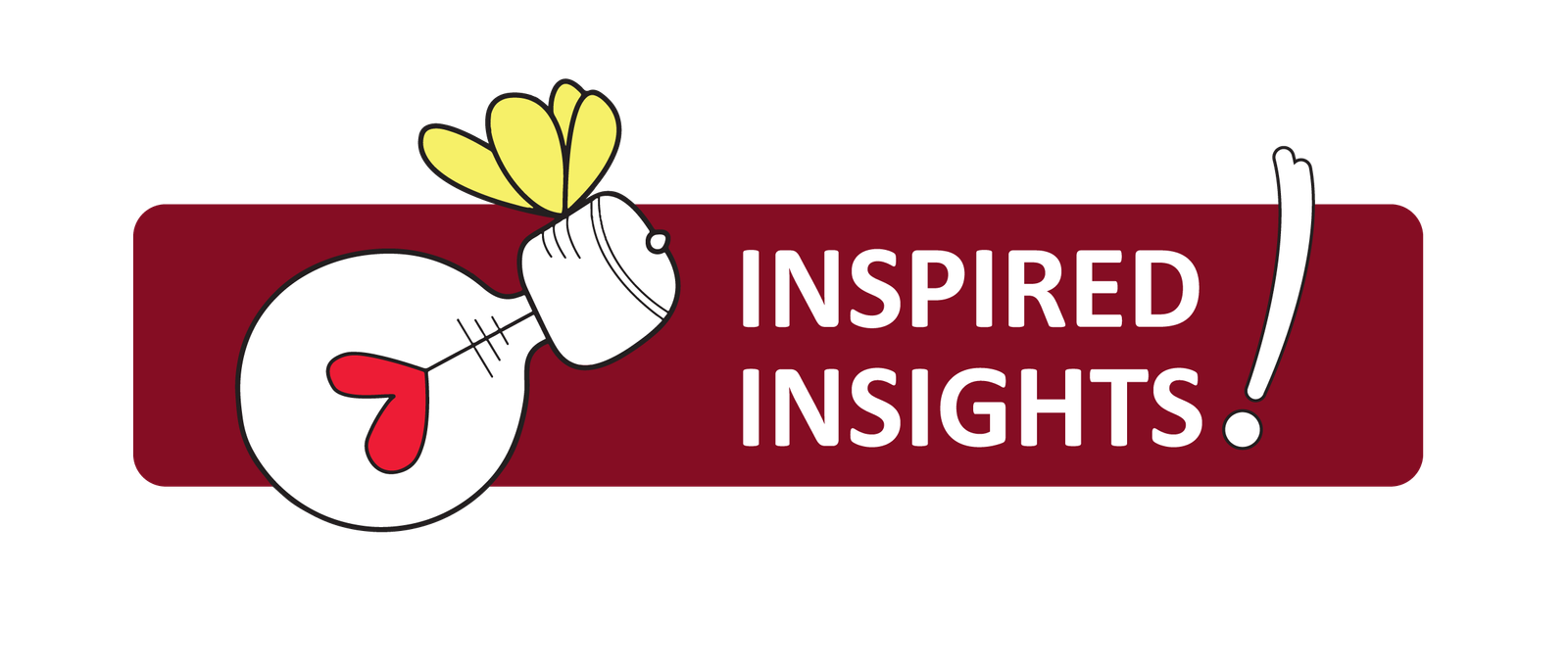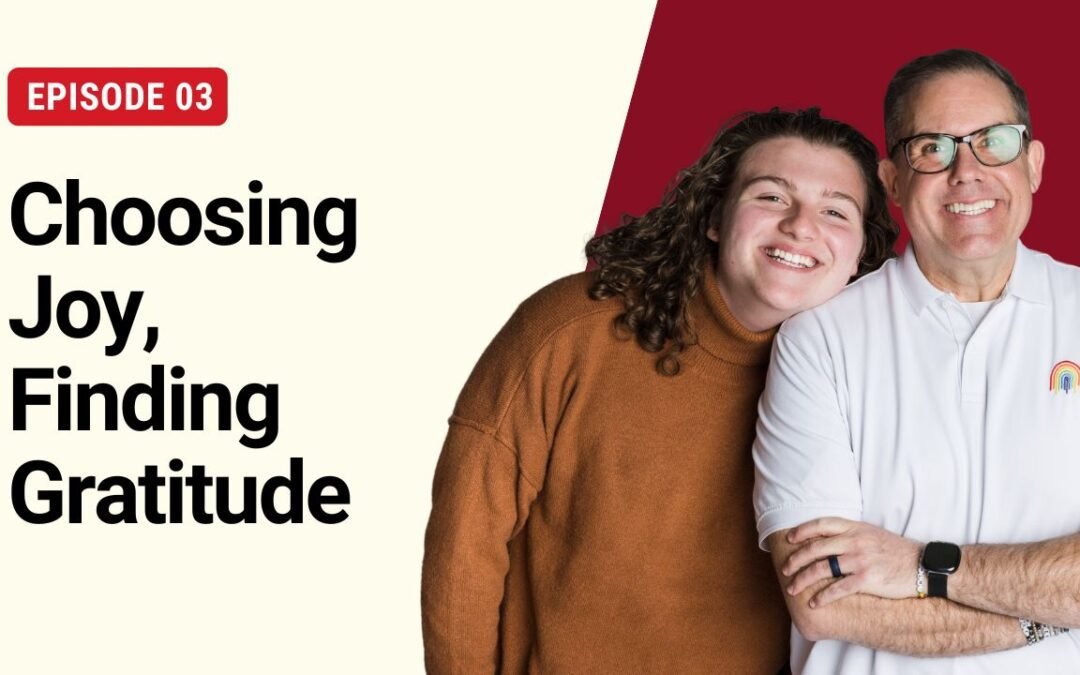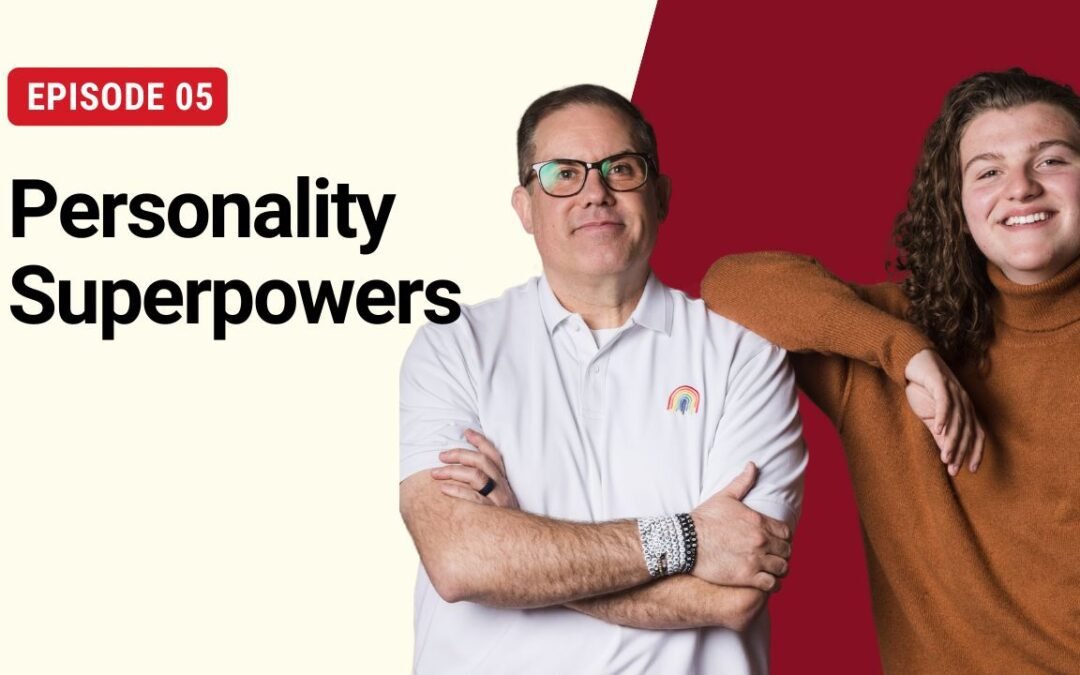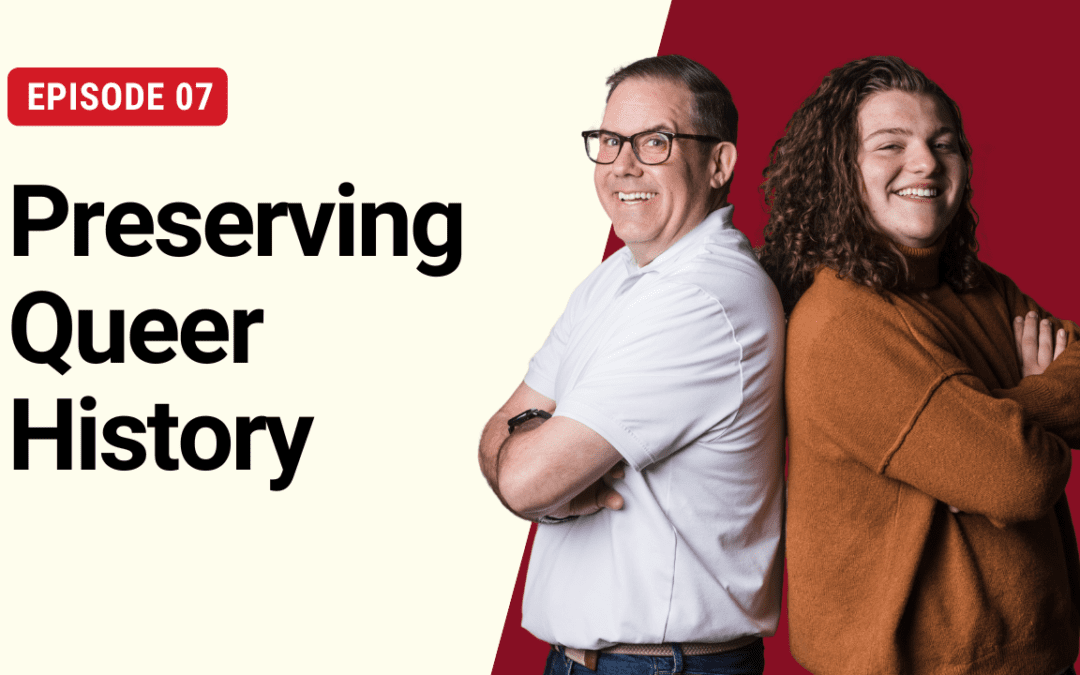Episode 1
Collecting Joy
S02 - Episode 1
November 02, 2024
28 mins & 07 secs
Speakers
Chris McLaughlin
Soren Peterson
About
The start of Season 2 is here! In our premiere episode, Chris and Soren explore the pursuit of happiness through the intentional collection of joy. This episode delves into the importance and necessity of seeking and preserving moments of joy, revealing how these experiences can profoundly influence our daily lives and overall well-being.
https://www.youtube.com/@InspiredInsightsPodcast
inspiredinsights@inspiredcg.com
*Please note that this episode contains sensitive behavioral health topics such as suicide and substance use. If you are experiencing a behavioral health crisis, please contact the 988 Suicide & Crisis Lifeline by calling 988 or visiting www.988lifeline.org.
**This podcast is for information and entertainment purposes only and should not be considered health advice. This podcast is not intended to replace professional medical advice.
Transcript
Chris:
The Inspired Insights podcast is for informational and entertainment purposes only and should not be considered health advice. This podcast is not intended to replace professional medical advice.
Soren:
Please note that this podcast may contain discussions on sensitive topics such as mental illness, suicide and substance use.
If you are experiencing a behavior health crisis or need support, please contact the 988 Suicide and Crisis Lifeline by calling 988 or visiting www.988lifeline.org
Chris:
Soren! Welcome back! Season 2 baby!
Season 2 of the Inspired Insights podcast. Welcome back listeners. It’s nice to have everyone here with us again.
I am Chris McClellan.
Soren:
I’m Soren Peterson.
Chris:
And this is season 2, the start of a brand new season.
Soren:
The dawn of a new era.
Chris:
How are you feeling about that?
Soren:
I’m feeling super excited.
I think season 2, we’re going to spice it up a little.
Chris:
We are. Season 2 is going to be, I think, bringing in some balance around, we still want to talk about the serious stuff.
We still want to inspire conversations between parents and caregivers and educators and providers. And we also want to model that there’s it’s appropriate at times to integrate who we are and some of our own style into some of these serious conversations.
Soren:
I want to get fun and saucy.
Chris:
Some of the feedback we got is we love the conversations of season 1 and people that know us said we’re missing you. We’re missing who you are. So let’s have a little bit of fun with this podcast as well.
We are going to talk a little bit today about joy. And one of the things you and I have talked about in thinking about season 2 is what could we use to kick off each episode of this new season. And then your mom, our producer, the light bulb went off and your mom said, what if you started every episode talking about what your inspired insight for the week has been?
Soren:
Speaking of fun, the other day, me and my friends, there’s a school near my house and during the summers there’s no children to play on the playground and the playground is left so sad and lonely and empty and we felt as though we need to take it on to ourselves to fill that gaping hole in the heart of that playground. So we went to play and boy was it a joy. It made me think we
don’t get to play a lot as like teenagers.
Chris:
And so your inspired insight has been this idea of the importance of play.
Soren:
Yeah.
Chris:
My inspired insight for the week is of course about my girl Taylor who is neck deep in her European tour of the heirs tour right now and my inspired insight has been around the importance of planning your joy.
You don’t get more methodical than Taylor Swift. Nothing is by accident. She says if you fail to plan, you plan to fail and I’m also eyeball deep down the rabbit hole of when is she releasing reputation Taylor’s version?
When is she releasing debut? All signs point to those things wrapping up this year in 2024 and as I explore this stuff in my brain my insight is plan and how freaking fun it has been to be a Swifty during this heirs tour era. The era of the heirs tour and that’s been a lot of my joy that I have been living in.
But I think we should start this premiere season 2 episode with a definition. So Soren, what does joy mean to you?
Soren:
Joy is like an elation that wells up inside of you and bursts out with perhaps a giggle, perhaps a laugh bit of a cheeky smile like that and I think that joy is a very active dynamic emotion.
It’s one that inspires activity. It’s one that creates satisfaction and it’s one that imbues our memories with a special golden shimmer.
Chris:
Yeah.
Oh I love the golden shimmer part of that definition.
Soren:
Yeah.
Chris:
Would you say that joy is synonymous with happiness?
Soren:
I think joy is a poignant, very like movement forward emotion. Whereas like happiness can be like closer to a state of being and more sedentary.
Chris:
If I had this like continuum of okay I’m content okay I’ve moved to happy, okay now I’ve moved to the state of joy is that sort of the sequencing that you might see these emotions as well?
Soren:
I sort of view joy as a very spontaneous, momentary fleeting thing which I think is very different from the way a lot of other people view joy. Like I was talking to my father and he views joy as a state of being similar to like contentedness and you were talking about planning your joy which is some like you can plan satisfaction and stuff whereas like I think joy is unplanned. It just happens.
It’s very spontaneous.
Chris:
Are there things that you can do in your life to ensure though that you will eventually stumble over one of those spontaneous joy moments?
Soren:
Oh definitely, definitely.
I think that there are certain like activities that spawn joy for me. I love being outside. I love being with my friends.
Chris:
Reclaiming the ghosts of a playground past?
Soren:
Yeah exactly.
Chris:
It’s interesting because as you’re talking it doesn’t maybe feel so spontaneous anymore.
If you are intentionally doing things that you know will elicit that emotion in you, is it truly spontaneous?
Soren:
We can do things to put the kindling there. We can get enough airflow but I think joy requires a spark.
Chris:
Okay and we as humans can’t create the spark but we can create the foundation.
Soren:
Yeah we can definitely create the environment and I think that other people outside of us are our spark. Or like media that we engage with or the beauty around us creates a spark for us, right?
And we can put ourselves in environments that are very spark prone. At the same time I think my perspective might come out of like an idealism like a romanticism of joy.
Chris:
Yeah but I love your point still around we’ve got to make the bed still.
We’ve got to create the foundation that spontaneous moments can then occur. You can’t expect a spontaneous spark if there’s no oxygen, if there’s no heat, if there’s no kindling. If there’s no base for the spark to exist in then it’s a pretty joyless life.
As somebody who trains in this topic and I’ve done a lot of research around joy and the science of happiness and chicken and egg kind of questions which comes first and I know you’re going to love to nerd out on the neurochemistry of joy and all of our joy chemicals that exist in our brain. We also have to nurture that. So we also as humans have to make sure that we’re eating right, getting enough sleep, getting enough movement and exercise so that the science of joy, the spark as you put it, can still happen.
Soren:
I really like that idea. This was a super important part of my recovery process is realizing that I need to do this. I spend a considerable amount of my mental energy thinking about my brain health and thinking about how I can nurture my brain health and part of nurturing my brain health is exercising regularly, eating fairly well.
I don’t always do the best with it but and going outside a lot and maintaining healthy relationships with my friends and family. And sleeping is super important for me. But I think it’s super important that we make a concerted effort to keep in our minds our brain health and just be very aware of stagnation.
Chris:
And those are the risk factors, at least for you and I don’t think you’re that different than a lot of other Cubans, regardless of age that I’ve met. I am not at my best if I’m lacking sleep. I am not at my best if I’ve been couch potatoing it.
I’m not at my best as much as I think it’s bringing me joy to munch on the donuts and the pastries and those kind of baked goods which are like my Achilles heel of the food groups. The baked goods food group. Give me a cream horn, give me a Danish, give me a flaky puff anything.
You could fill that flaky puff with bird shit and I would devour it. It would be, it’s delicious to me. As much as I think that’s, oh this is a moment of joy the end result of that are not so joyful moments.
Soren:
Yeah, yeah. And like, I have to think well, this will be fun in the moment, but is this nurturing my overall brain health and make decisions accordingly. And that really helps me not overindulge in things like food or marijuana or something of that nature.
Chris:
Yeah, which is a part of your recovery as well. And I think this might be an episode a future episode that our listeners might be interested in is some of these generational approaches to recovery because how you define recovery might be different than somebody from my generation defines recovery. But what you have learned about yourself in a recovery mindset post trauma, you know, things that listeners learned about you in season one, the way you define recovery today and that balance that you have around overindulgence, whether it’s in any of these buckets.
Not how you view joy during your middle school years.
Soren:
Yeah. I think that’s a super interesting transition where joy in my youth was truly spontaneous and kind of constant.
I was a very silly, fun-loving kid, and I still think I’m quite silly and fun-loving, but it was constant and very at the surface. I think of Inside Out where joy is running the ship when you’re a child. Whereas now happiness is more nuanced and has to be mediated and stuff that brings us joy has to be controlled for and sought out rather than being a state of being.
I think that’s super important to realize through that transition. I think a lot of preteens have the joy seeking out capabilities of a child. Children don’t have to seek out joy.
Chris:
It’s there. In playgrounds.
Soren:
Yeah, exactly.
Soren:
Things you’ve already said. We have to learn how to seek out that joy in our lives, transitioning through that. I think a lot of adults now struggle with seeking out joy deliberately, or struggle with coming up with things that will bring them joy.
Making time for it.
Chris:
Yeah, I think as you get older, as one gets older, we have to get even more intentional around finding opportunities to play, around collecting moments of joy, around finding joy. And for me, in my life, as my husband will tell you, collecting joy for me sometimes looks really literal, like really materialistic, as the boxes show up at our doorstep day after day. I’m a collector.
I’m a collector of things that bring me joy, whether it’s the artwork of Fabio Napoleone, whether it’s Taylor Swift collectibles, whether it’s funny t-shirts, the 57 things that I collect and like to surround myself with, books, memorabilia of movies, an 80s TV show, I could go on and on. For me, at almost 50 years old, collecting joy has become a really literal process of decorating my environment in the things that bring me joy. For you, it’s time on a deserted playground with your friends.
Soren:
Well, I actually, I think that that parallels really nicely. I also collect joy. I collect joy in ideas and I collect joy in memories so that I can adorn my mental space so it’s a place that I feel super happy being in.
Much as you do your external space because you’ve already melded your mind where it’s something super comfortable for you.
Chris:
I love your metaphor of decorating the inside walls of your brain. I think as I have aged, I’ve had to get more intentional at that camera, like this is going, I’m hanging this in the mental gallery because I might not need it today, but there’s going to be a time whether it’s tomorrow, next week, next month, where it’s going to get harder when life, as life always does, when we hit a bump in the road, I want to be able to look inward and have the walls decorated of my inside, my brain, so that I can take a moment and stroll through the memory banks and look at all those mental pictures that I snapped because I promise you there will come a time sooner rather than later, that’s just the way life is, where we’re going to need the mental art gallery of those pictures that we snapped.
Soren:
It’s hard to be sad inside a bouncy house.
Chris:
Yeah, you can’t, right?
Bubbles. It’s hard to be sad around bubbles. So these are some of the pictures that I’ve snapped and for you, for me, one of our favorite new activities with our dogs, we bought bacon-scented bubbles that are meant for dogs, right?
They’re edible, it’s not soapy, it’s a different product. Watching our dogs bite after bacon bubbles never will get old for me. And that’s been one of those moments where, snap the picture, when times are tough, I can go back in the Rolodex of the pictures of my brain and go yeah, that was a moment of pure joy.
When you’re with your friends and you’re doing some of the silly kind of stuff, reframing it as teenagers reminding yourself to play, reminding yourself to make time to play, do you talk about that outwardly, like hey friends, let’s create some moments of joy right now, or is it just instinctual for you at that age?
Soren:
No, totally. Like, my friends now and myself will be like, let’s go play on the playground guys, because it’s super fun.
And we love to play. And we actually, we made like PVC pipe swords to duel and such with, and put pool noodles over them. They’re all broken down now.
Like, we do make a very concerted effort to play and be creative. And like, most of the time that we hang out, we’re either talking or playing.
Chris:
And for you and your friend group, do you take a lot of pictures or selfies?
Soren:
No, not at all.
Chris:
That’s interesting.
Soren:
I don’t take any pictures, really.
My entire camera roll is either like, random screenshots of passwords that I needed to remember, or like pictures that my mom sent me.
Chris:
Whereas my generation, who didn’t grow up with smartphones in our pockets, right? So, having a camera on us at all times, like, I feel like I see more adults selfying or taking pictures of one another than I see teenagers.
Soren:
Yeah, like, my mother values pictures highly. And it’s kind of like an oddity to me, because I don’t really, like, care. Given, I think it might be a semi-result of my memory and such.
Chris:
Like an age difference?
Soren:
Yeah, yeah.
But, like, once you get older, it’s more important to savor those things.
Chris:
Ouch. Ouch.
Your mom, for years, for anybody that knows your mom, knows that she does a second of video every day. And at the end of the year, creates a 365 second video that is literally a culmination of one second of video every single day.
Soren:
Yeah.
Chris:
Every single day. And she finds, like, a fun song or something to put in the background. And then she publishes her six plus minute video of you all playing a second a day.
It’s fascinating to me. And, like, clockwork. I’ve been out with your mom, and she’s like, oh, dang, I haven’t done my second of video today.
You want to be in my second of video? And we’re all like, yeah, yeah, I’d love to be in your second of video today. But she’s creating a joy reel, right?
Of things of her life that you and your brother and your dad are obviously well represented in. Where she can refer back to this. This will live forever.
Soren:
Yeah. And I am super glad, because on my phone, all the cameras from her old phone transferred to it through iCloud. And I get to look back at pictures of me when I was, like, nine.
Chris:
Oh, that’s so cool.
Soren:
And it’s, I think it’s very cool. Because, boy, was I cutie patootie.
Chris:
What do you see, though, in those pictures when you look back? Do you see nine-year-old Soren experiencing joy?
Soren:
Um, I was always giggling.
Chris:
Yeah.
Soren:
And always laughing. And always beaming with pride for myself.
Chris:
Yeah.
Soren:
And, like, I have looked at those pictures, and I remember that I think we look back on our memories and slowly they become, like, drained of their saturation until we’re left with only, like, a vague feeling about it rather than, like, a strong visualization and a thought process. But looking back at those brings it back to some extent for me. And I find it super valuable.
Which then makes me think, why am I not taking pictures of my friends now?
Chris:
You just read my mind.
Soren:
But it’s too much work.
Chris:
You just read my mind. That of all the fun times that you have described with your friends, also in our previous episodes, I sit here thinking, the fuddy-duddy in me, like, you’re gonna regret not having pictures of that physically or digitally to refer back to someday.
Soren:
Yeah.
Probably. But I think, I don’t know, it takes away from the moment when it’s like, okay guys, let’s take a picture. Yeah.
Chris:
Does it feel artificial?
Soren:
Yeah.
Chris:
It does. Forced
Soren:
I mean, on occasion we do, like, a photo shoot, but it’s very, like, staged in an area. Like, it’s just funny pictures.
Chris:
It comes, like, bringing this kind of full circle to me about collecting joy and how for me, that’s become quite literal. For you, it remains a little bit more metaphorical. That you are collecting memories whereas I’m collecting stuff and making those memories a little bit more permanent, with a photo or with, like, I’m not a journaler.
Do you journal?
Soren:
No.
Chris:
Yeah, so I’m not doing anything pen and paper to put that stuff in deeper memory.
And so for me, having a space physically where I’m surrounded by the things that elicit a feeling of joy or potential they’re the kindling where joy moments can spark. And to occasionally go through the reel on my cell phones and look at those moments and remind those moments. One of my favorite, and I know this is my husband’s daily activity, is doing Facebook memories.
And on this moment last year, three years ago, eight years ago, and just going back in time and remembering what this day looked like in the past is another way that I can look back and smile.
Soren:
For a long time actually, I used to get really sad looking at old things because I was like well, this is when I was quite mentally ill. I thought that I would never reclaim the same amount of happiness that I saw in those pictures.
And so it would just make me really sad. But now I am sort of embracing my past and I look back at my childhood and I’m like, this is so awesome that I got to experience all this. And it makes me super happy because I was such a cute little giggly kid.
Chris:
Yeah, you were.
Soren:
Yeah, and I’ve sort of reclaimed my happiness from the past rather than my happiness from the past creating sadness in the present.
Chris:
Oh, just sit with that for a second. I mean, I think it’s part of the recovery process or the way you have personalized your recovery process.
And it truly, for me, for listeners out there who might also be struggling with depression or anxiety or traumatic things happening, like we all know, we’ve all had shades of these things in our past. Your story of where you are now with joy compared to where you were really inspires some hope.
Soren:
It inspires hope in me, certainly.
I hope that it inspires hope in others.
Chris:
It does, and it will. As we wind down this conversation about joy, the whole reason I wanted to bring this, especially to our first episode, is I wanted you to know that through the process of doing eight episodes of a podcast that we have been talking about for months and months and months before your mom built the kindling pile high enough for it to happen, this whole experience has brought me joy.
And having these conversations with you and learning more about who you are and hearing your story has inspired joy in me.
Soren:
I have come away from every episode feeling good, I think.
Chris:
Good.
Soren:
And I hope that the listeners come away from every episode feeling good as well.
Chris:
Yeah, even though there are moments of tough stuff and serious stuff we’re talking about, the umbrella that that tough stuff lives under or is shaded by, the umbrella is hope.
Soren:
Yeah.
Chris:
And the umbrella is it does get better, it will get better, brighter days are still ahead, and you live that every day. I hope you go back and listen and watch this episode again. The smile that comes on your face when you talked about playing in a playground, when you talked about creating fake swords, when you talked about bubbles, that is real.
That is real. And there’s a quote from Brene Brown, one of my social work heroes, about collecting joy fuels resilience. And as we get more intentional in the days and weeks and months ahead around sparking joy or building a foundation that joy can spark, I want to leave folks with this image of I think what Brene was trying to paint in this quote about as we are collecting joy, we are fueling our resilience and we are putting it in this reservoir so that when tough stuff happens, as tough stuff is always going to happen, we’ve built a supply that we can dip into, look at the pictures, whether they’re in our brain or on our phone or in a photo album,
Soren:
Yeah
Chris:
Remember those moments and fuel the resilience to go even further, more forward.
Soren:
Totally. I think that will wrap up our first podcast of season two on joy.
We look forward to seeing you next week. I’ve been Soren Peterson.
Chris:
I am Chris McLaughlin.
Soren:
Have a lovely day.
Chris:
Thank you.
The Inspired Insights podcast has been brought to you by Inspired Consulting Group LLC.
Edited and produced by Amanda Seidel and Derek Herter. Marketing support for the Inspired Insights podcast by Elizabeth Keenan. Music by Derek Herter.
Please visit www.inspiredcg.com to learn more. Copyright 2024. All rights reserved.
Show More

All Episodes

S3E1: Welcome Back
Welcome back to the Inspired Insights Podcast for the very first episode of Season Three! Join hosts Chris and Soren as they dive into a heartfelt conversation about the evolving world around us–and within us.

S3E2: Finding Our Voices: Advocacy in a Changing World
Chris and Soren sit down with seasoned lobbyist and tireless human rights advocate, Charlotte Warren, to explore the power—and the personal cost—of advocacy in today’s shifting political landscape.

S3E3: Choosing Joy, Finding Gratitude
Chris and Soren unpack how reframing our thoughts can change the way we experience the world—from the inside out.

S3E4: The Power of Storytelling
Chris and Soren sit down with Authenticity Coach and Author Suzanne Carver to explore how sharing your story—and embracing who you truly are—can open doors to healing and transformation.

S3E5: Personality Superpowers
In this episode, Soren and Chris explore their Myers-Briggs personality types and how trauma and lived experience have influenced how they show up in the world.

S3E6: The Power of Pride
Together, they explore the deeper meaning behind Pride celebrations—why they matter, how they foster connection and visibility, and what it really takes to bring a community-wide event like this to life.

S3E7: Preserving Queer History
Soren and Chris sit down with special guests Sam and Emma to explore the vital importance of preserving queer history through storytelling and community memory.

S3E8: Under Pressure
What happens when we let teens speak for themselves? In this candid and eye-opening episode, Soren and Chris hand the mic to two remarkable young adults—Sophie and Bennet
